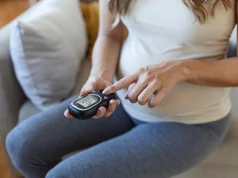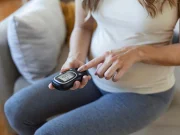Greater cardiorespiratory fitness gains seen with high-intensity interval training versus moderate-intensity continuous training
By Elana Gotkine HealthDay Reporter
FRIDAY, Aug. 9, 2024 (HealthDay News) — For individuals after stroke, 12 weeks of short-interval high-intensity interval training (HIIT) is effective for improving cardiorespiratory fitness (V̇O2peak), according to a study published online Aug. 8 in Stroke
Kevin Moncion, P.T., Ph.D., from McMaster University in Hamilton, Ontario, Canada, and colleagues conducted a multisite, 12-week randomized controlled trial with eight-week follow-up to compare the effects of 12 weeks of short-intensity HIIT versus moderate-intensity continuous training (MICT) among individuals at least six months poststroke. A total of 82 participants were randomly assigned to three days/week of HIIT or MICT (42 and 40 participants, respectively).
The researchers observed no adverse events during the study period. There was a significant group x study time point interaction for V̇O2peak at 12 weeks (mean difference, 1.81), with greater gains for the HIIT group versus the MICT group (Δ3.52 versus Δ1.71 mL/kg/min). At the eight-week follow-up, there was no between-group difference seen in V̇O2peak. There were no group x study time point interactions observed for cardiovascular risk factors or mobility outcomes.
“Given that a lack of time is a significant barrier to the implementation of aerobic exercise in stroke clinical practice, our findings suggest that short-interval HIIT may be an effective alternative to traditional MICT for improving V̇O2peak after stroke, with potential clinically meaningful benefits sustained in the short-term,” the authors write.
Copyright © 2024 HealthDay. All rights reserved.



















